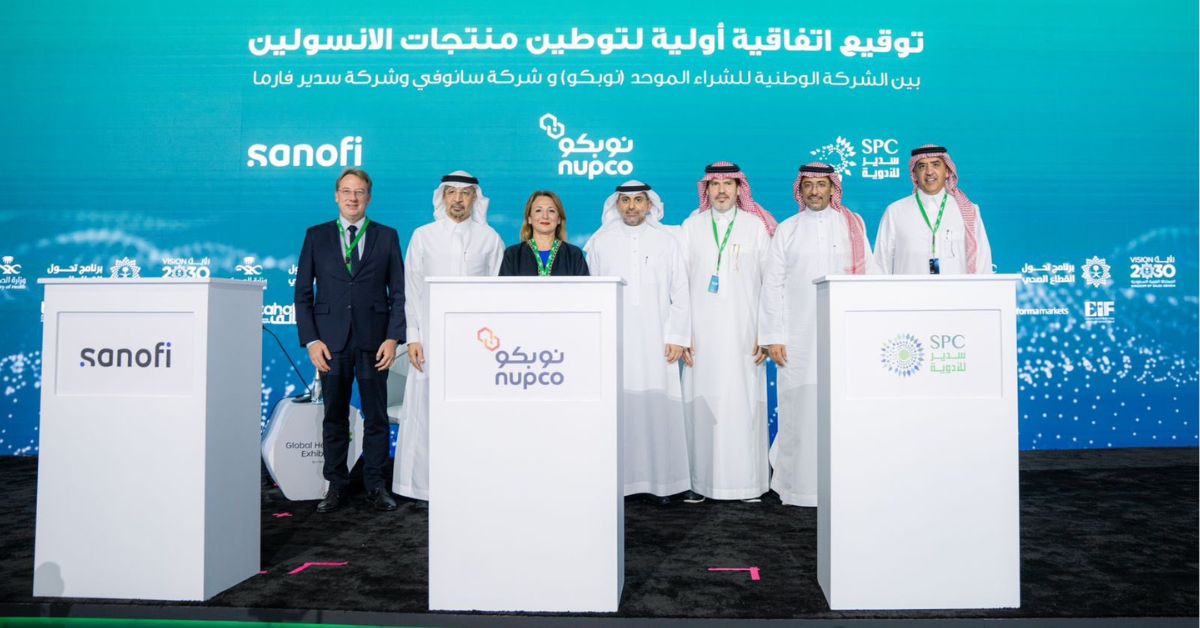Riyadh – Saudi Arabia aims to produce 80 to 90 percent of its insulin domestically, said the Kingdom’s Minister of Industry and Mineral Resources, Bandar bin Ibrahim Al-Khorayef.
He emphasized the ministry’s commitment to attracting high-quality investments in the pharmaceutical and healthcare sector and expanding exports.
While participating in the Global Health Exhibition, he spotlighted the accomplishments of the committee dedicated to localizing and developing medications.
He noted that the committee has received over 1,000 pharmaceutical formulations from various organizations, including the Ministry of Health and the Saudi Food and Drug Authority (SFDA), among others.
Moreover, he pointed out that over 200 essential medications have been identified, making up about 40 percent of the total purchases by government health institutions, totaling roughly SAR14 billion. Efforts are currently in progress to produce some of these medications locally.
The Local Content and Government Procurement Authority (LCGPA) has inked a preliminary agreement with National Unified Procurement (NUPCO), SUDAIR PHARMACEUTICAL COMPANY, and Sanofi to produce insulin products locally and facilitate knowledge transfer.
This agreement was formalized during the Global Health Forum, sponsored by Al-Khorayef, with the presence of the Ministers of Investment, Eng. Khalid bin Abdulaziz Al-Falih, and Health, Fahd bin Abdulrahman Al-Jalajel.
The CEO of the authority, Abdulrahman bin Abdullah Al-Samari, expressed that localizing the production and knowledge transfer of insulin products is a top priority for the health sector. He believes this will bolster local content in the pharmaceutical industry, aligning with the Health Sector Transformation Program, a key initiative under the Kingdom’s Vision 2030.
Al-Samari highlighted that the LCGPA has been instrumental in advancing preventive health through several high-quality initiatives. These initiatives align with the efforts of both the Vaccines and Biopharmaceuticals Industry Committee and the Treatments Localization and Development Committee, which focus on localizing priority sectors to ensure health and pharmaceutical security.
He extended his gratitude to all governmental bodies involved in the agreement, notably the Ministry of Health and the Government Expenditure and Projects Efficiency Authority.
During the Global Health Forum, the Ministry of Investment inked eight memoranda of understanding (MoUs). One notable MoU pertains to medical biotechnology. In this agreement, the Ministry of Investment, the Ministry of Health, and the Ministry of Industry and Mineral Resources committed to probing investment avenues and collaboration. Their goal is to transfer cutting-edge techniques, technology, and expertise in the realms of the pharmaceutical industry and biotherapeutics.
Furthermore, seven distinguished local and international firms, boasting a collective investment exceeding SAR4 billion (US$1.06 billion), formalized Memorandums of Understanding (MoUs). These agreements aim to achieve self-reliance in the Saudi market, with an eye on future exports. They also delve into potential opportunities to localize the supply chain for sophisticated medical devices.

